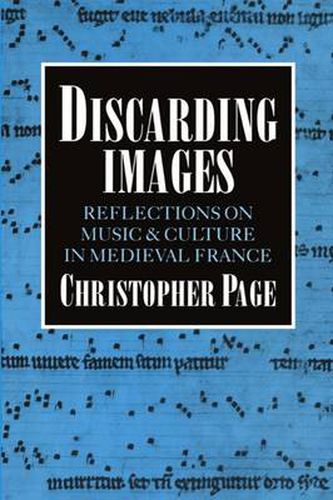Readings Newsletter
Become a Readings Member to make your shopping experience even easier.
Sign in or sign up for free!
You’re not far away from qualifying for FREE standard shipping within Australia
You’ve qualified for FREE standard shipping within Australia
The cart is loading…






For many centuries, the Western imagination has picture the medieval period as a kind of odyssey: a journey that took Mankind to a strange country and ended in the Renaissance with his homecoming and the restoration of his inheritance. In this stimulating and provocative book, Christopher Page explores the kinds of generalization that we habitually make about “the Middle Ages’ and which, whether we know it or not, sustain the false image of medieval odyssey. In chapters that proceed chronologically from the thirteenth century to the fifteenth, he examines what we suppose to be the serenity of medieval reflection on such matters as the "numerical’ explanation of musical beauty, and he questions the modern tendency to regard Ars antiqua motets as music for "an intellectual elite’. Turning to the Ars nova and beyond, he discusses the relation between fourteenth-century innovations and contemporary science. A final chapter explores the powerful influence on Joan Juizinga’s classic The Waning of the Middle Ages, upon musicology. Page’s lively prose if full of ideas, is based upon first-hand learning, and is enriched by an uncommonly deep experience of medieval music.
$9.00 standard shipping within Australia
FREE standard shipping within Australia for orders over $100.00
Express & International shipping calculated at checkout
Stock availability can be subject to change without notice. We recommend calling the shop or contacting our online team to check availability of low stock items. Please see our Shopping Online page for more details.
For many centuries, the Western imagination has picture the medieval period as a kind of odyssey: a journey that took Mankind to a strange country and ended in the Renaissance with his homecoming and the restoration of his inheritance. In this stimulating and provocative book, Christopher Page explores the kinds of generalization that we habitually make about “the Middle Ages’ and which, whether we know it or not, sustain the false image of medieval odyssey. In chapters that proceed chronologically from the thirteenth century to the fifteenth, he examines what we suppose to be the serenity of medieval reflection on such matters as the "numerical’ explanation of musical beauty, and he questions the modern tendency to regard Ars antiqua motets as music for "an intellectual elite’. Turning to the Ars nova and beyond, he discusses the relation between fourteenth-century innovations and contemporary science. A final chapter explores the powerful influence on Joan Juizinga’s classic The Waning of the Middle Ages, upon musicology. Page’s lively prose if full of ideas, is based upon first-hand learning, and is enriched by an uncommonly deep experience of medieval music.